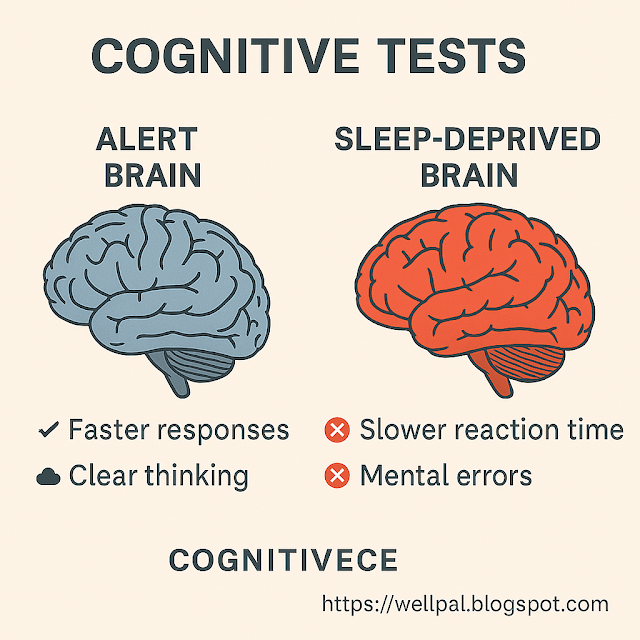- Get link
- X
- Other Apps
- Get link
- X
- Other Apps
🌚 TL;DR (Too Long; Didn't Read)
Sleep isn't downtime; it's prime time for your brain to organize, strengthen, and store memories.
Deep sleep (especially slow-wave sleep) plays a critical role in learning, emotional regulation, and decision-making.
You can boost memory and sleep quality naturally with a few intentional daily practices.
📊 Quick Poll – How Do You Sleep?
🧾 Poll Results
😴 Like a baby:
0%
😕 Okay, with interruptions:
0%
😬 Light and restless:
0%
😩 Can’t sleep at all:
0%
💬 Expert Dialogue: “Why Does My Brain Work Better After Sleep?”
Sophie (College Student): "I always do better on tests when I sleep, even if I didn’t cram. Why is that?"
Dr. Navarro (Sleep Scientist): "Because your brain isn't idle while you sleep. It’s actively processing and storing what you learned. Especially during deep sleep and REM cycles."
Sophie: "So sleep literally helps me learn?"
Dr. Navarro: "Absolutely. Studies show the hippocampus replays memories from your day, sorting what to keep and what to discard. It’s like overnight mental filing."
Sophie: "Then why do I forget some things anyway?"
Dr. Navarro: "Poor sleep hygiene or fragmented sleep disrupts this process. Even a single night of poor sleep can impair memory encoding."
Alt text: A sleek digital illustration shows neural circuits lighting up during slow-wave and REM sleep phases, highlighting hippocampal activity and cortical integration. Blog address https://wellpal.blogspot.com/ is elegantly placed along the bottom edge.
🧠 A Personal Story: From Fog to Focus
I used to think staying up late to study was the smartest way to ace exams. But after pulling multiple all-nighters, my performance didn’t improve — it plummeted. I’d reread the same sentence five times and still not remember it the next day.
That changed when I started prioritizing sleep. I began sleeping 7–8 hours consistently and noticed something remarkable: I could recall more, understand faster, and even felt emotionally calmer. One morning after a solid night's rest, I solved a complicated problem I'd been stuck on for days — it was like my brain had worked it out while I was asleep.
Sleep wasn’t stealing study time — it was sharpening it.
🔬 The Neuroscience of Sleep and Memory
✨ 1. Memory Stages and Sleep's Role
Your brain processes memories in three stages: encoding, consolidation, and retrieval.
Encoding: Happens while you’re awake, experiencing new things.
Consolidation: Happens mostly during sleep, where memories are stabilized and enhanced.
Retrieval: The next day, you recall the memory.
Study: Science (Walker & Stickgold, 2004) showed that deep sleep improves memory retention by up to 40%.
🌙 2. Slow-Wave Sleep (SWS) – The Deep Memory Builder
Slow-wave sleep is especially powerful for consolidating declarative memories (facts and knowledge).
During this phase, the hippocampus communicates with the prefrontal cortex.
Electrical signals help embed new learning into long-term storage.
🛌 3. REM Sleep and Emotional Memories
REM sleep aids in storing emotionally charged memories.
It helps you process trauma, reduce stress, and understand social dynamics.
Study: Harvard Medical School (2020) found that REM sleep enhances recognition of emotional content.
⏰ 4. Sleep Deprivation = Cognitive Chaos
Even partial sleep restriction causes:
Reduced concentration and problem-solving
Lowered learning capacity
Mood swings and increased emotional reactivity
Study: Nature Neuroscience (2007) found one night of poor sleep reduces hippocampal activity by nearly 40%.
Alt text: A chart that breaks down memory consolidation during different sleep cycles: Light sleep, SWS, REM. Blog address https://wellpal.blogspot.com/ is shown in the footer.
🔍 FAQ: Sleep and Learning
⭐ 1. Can naps help memory too?
Yes. A 20- to 60-minute nap can boost learning and recall, especially when taken after studying.
⭐ 2. What is the best time for memory-enhancing sleep?
The first half of the night is rich in SWS, best for factual memory. The second half has more REM sleep, better for emotions and creative thinking.
⭐ 3. How can I increase deep sleep?
Maintain a consistent bedtime, avoid screens 1 hour before bed, reduce caffeine after 2 PM, and keep your room dark and cool.
⭐ 4. Does dream content matter?
Dreams reflect emotional processing and subconscious themes. Lucid dreaming may even support skill enhancement, though research is ongoing.
⭐ 5. How does diet affect sleep and memory?
Magnesium, B6, and omega-3s support restful sleep and memory. Avoid sugar and alcohol late in the evening.
Alt text: Infographic comparing alert vs. sleep-deprived brains in cognitive tests. Blog address https://wellpal.blogspot.com/ included clearly at the bottom.
📊 Self-Check: Are You Sleeping for Memory?
📍 Navigation
⬅️ Previous: Part 5 : The Power of Movement – Why Motion Is Brain Medicine
➡️ N e x t: Part 7 : Mental Fitness Routines – Daily Habits to Strengthen Your Brain
🚀 CTA
Visit our sister blog at https://mynote7226.tistory.com for bonus tools, guides, and Korean-translated deep dives.
Explore 14 curated wellness blog series to nourish your mind and body—all in one place.
Let’s rewire your life — one smart habit at a time.
💚 Thank you for reading!
We hope this post helped you feel more informed, supported, and inspired.
Stay well and come back anytime.
Brain Performance During Sleep
Cognitive Function and Sleep
Deep Sleep Benefits
How Sleep Affects Learning
REM and Memory Consolidation
Sleep and Memory
Sleep for Brain Health
Sleep Hygiene for Students
- Get link
- X
- Other Apps




Comments
Post a Comment